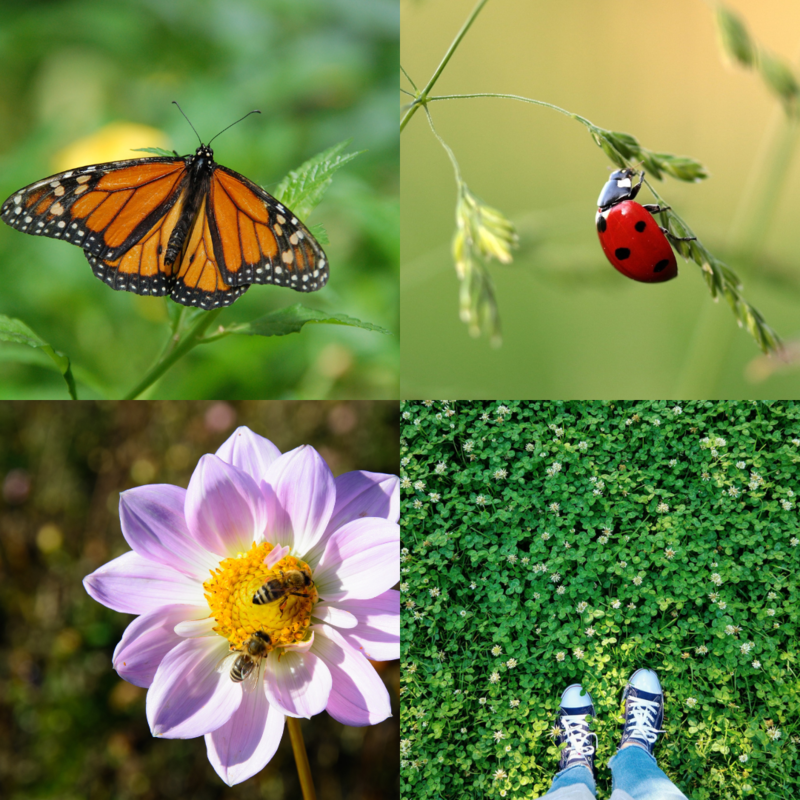Reconsider our approach to lawn maintenance
Author: UNB Sustainability
Posted on May 15, 2023
Category: Opinion

Lawns all over the province are growing, and it can be tempting to want to keep up with the Joneses and have a 'pristine' lawn; however, as we become more aware of our actions' environmental impact, it's time to reconsider our approach to lawn maintenance.
One simple step towards sustainable lawn maintenance is to resist the urge to mow our lawns in May. Participating in the No Mow May initiative will give our lawn plants more time to produce nectar. The initiative's primary goal is to support pollinators (like bees, butterflies, and other insects), but it also supports other wildlife. This month is critical for pollinators, who rely on our lawn flowers to survive. Unfortunately, mowing our lawns too early deprives them of the necessary resources to thrive. In addition to supporting pollinators, leaving our grounds un-mowed for a little longer also has other benefits. For example, it can help to reduce the amount of water we use on our lawns, as longer grass retains moisture better than short grass. It reduces the amount of greenhouse gases that would be produce by lawnmowers. And, by allowing our lawns to grow a bit wilder, we're creating habitats for various species, from birds and insects to small mammals.
Of course, we're not suggesting you never mow your lawn. But by being mindful of the timing and frequency of your lawn maintenance, you can make a positive difference to the environment. So, next time you're thinking about firing up the lawnmower in May, consider the impact of your actions. Consider letting your lawn grow a bit wilder instead.
However, the No Mow May initiative has many benefits, some experts warn that it could harm pollinators and even lawns. They have explained that early-flowering weeds found on grounds are not a complete source of nutrition for pollinators, as well as the fact that come June, residents will mow their lawns, and then pollinators will have to search for nectar and habitat elsewhere. Lawns could also be harmed because the lack of mowing allows weeds to take over.
Overall, the most effective way to help our local pollinators this month (and into the summer) is to leave some areas of your garden/yard to grow naturally for as long as possible. Additionally, you could plant some native and pollinator-friendly perennial species available for pollinators today and in the future!
Resources
Engage Fredericton
The University of Guelph and Guelph Turfgrass Institute